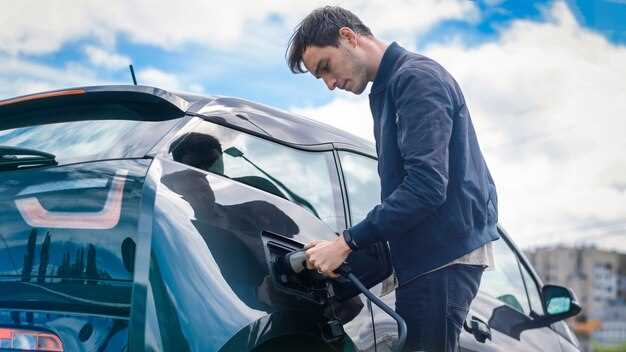
The BMW X3 Plug-in Hybrid Electric Vehicle (PHEV) represents a significant evolution in luxury compact SUVs, combining traditional performance with advanced eco-friendly technology. This analysis delves into the financial implications and advantages of owning the BMW X3 PHEV, exploring factors that contribute to its overall value proposition.
One of the primary considerations for potential buyers is the cost associated with the purchase and ownership of the X3 PHEV. While initial investment may exceed that of its conventional counterparts, the long-term benefits, including fuel savings, potential tax incentives, and reduced maintenance costs, merit a closer examination. Understanding the economic landscape surrounding this luxury vehicle provides insight into its viability as an eco-conscious choice for modern consumers.
Beyond financial metrics, the benefits of the BMW X3 PHEV extend to environmental considerations and lifestyle enhancements. With its hybrid capabilities, drivers can experience lower emissions and reduced reliance on fossil fuels, aligning with contemporary sustainability goals. Furthermore, the seamless integration of electric driving modes enhances the overall driving experience, offering a blend of power and efficiency that is characteristic of the BMW brand.
In the following sections, we will conduct a thorough cost-benefit analysis of the BMW X3 PHEV, revealing how it stands as a compelling option in the luxury SUV market.
Initial Purchase Costs and Available Incentives for the BMW X3 PHEV

The initial purchase cost of the BMW X3 Plug-in Hybrid Electric Vehicle (PHEV) typically falls within the range of $50,000 to $65,000, depending on the chosen trim level and additional options. This pricing reflects the integration of advanced hybrid technology, premium materials, and performance features that are synonymous with the BMW brand.
It’s important to note that while the initial investment for the X3 PHEV may seem higher than traditional gasoline models, various incentives are available that can significantly offset these costs. Federal tax credits, often exceeding $7,500 for eligible hybrid vehicles, provide a substantial reduction in the total cost. Additionally, many states and local governments offer their own rebates and incentives, which can further enhance savings for purchasers.
Furthermore, buyers of the BMW X3 hybrid may also benefit from benefits such as reduced registration fees, access to carpool lanes, and potential discounts on tolls, making the overall cost of ownership more attractive. Understanding these incentives is crucial for potential buyers, as they help in evaluating the financial viability of switching to a hybrid vehicle.
Moreover, considering the long-term savings on fuel and maintenance, the BMW X3 PHEV presents a compelling option for those looking to invest in an environmentally friendly vehicle without compromising on luxury and performance.
Long-term Savings: Fuel Efficiency and Maintenance of the X3 Hybrid

The BMW X3 Plug-in Hybrid offers significant long-term savings through its exceptional fuel efficiency and reduced maintenance costs. Understanding these benefits can help potential buyers make informed decisions.
One of the primary advantages of the X3 hybrid is its fuel efficiency. Using both a gasoline engine and an electric motor, the hybrid system optimizes fuel consumption. Here are some key points regarding its efficiency:
- The X3 hybrid can operate on electric power alone for short distances, reducing overall fuel use during daily commutes.
- When utilizing both the gasoline engine and electric motor, the vehicle achieves better mileage compared to standard gasoline-only counterparts.
- Charging the hybrid regularly can further enhance cost savings, especially in regions with lower electricity rates.
In addition to fuel savings, maintenance costs for the X3 hybrid tend to be lower compared to traditional vehicles. Reasons include:
- The electric motor decreases reliance on the gasoline engine, which can lead to less wear and tear.
- Hybrids typically experience less frequent oil changes and lower brake wear due to regenerative braking systems.
- Many manufacturers offer extended warranties for hybrid components, reducing potential repair costs.
Considering these factors, the long-term savings from fuel efficiency and maintenance for the BMW X3 hybrid are substantial. These savings not only contribute to lower overall ownership costs but also align with environmentally friendly practices, making the X3 hybrid a wise investment.
Environmental Impact and Tax Benefits of Choosing the BMW X3 Plug-in Hybrid
The BMW X3 Plug-in Hybrid (PHEV) represents a significant step towards reducing environmental impact while enjoying the luxury and performance associated with the BMW brand. One of the primary benefits of the X3 PHEV is its ability to operate in electric-only mode, allowing for reduced greenhouse gas emissions, especially during short commutes and urban travel. This capability not only helps lower the overall carbon footprint, but also contributes to improved air quality in densely populated areas.
Additionally, the hybrid powertrain of the X3 combines an electric motor with a gasoline engine, providing a seamless transition between both sources of power. This hybrid technology increases fuel efficiency, meaning fewer trips to the gas station and lower fuel expenses over time. As the automotive industry continues to evolve, vehicles like the BMW X3 PHEV encourage the shift towards more sustainable driving practices.
To further incentivize eco-friendly vehicle choices, many governments offer tax benefits for plug-in hybrid vehicles. Owners of the BMW X3 PHEV may qualify for various incentives, such as tax credits or rebates, which can significantly offset the initial purchase price. These financial advantages are designed to promote the adoption of cleaner technologies, making it easier for consumers to choose hybrid options like the X3.
In summary, selecting the BMW X3 Plug-in Hybrid not only addresses personal driving needs but also contributes positively to the environment. Coupled with valuable tax benefits, the X3 PHEV stands as a compelling choice for those looking to invest in a greener future while enjoying the advantages of a premium vehicle.
